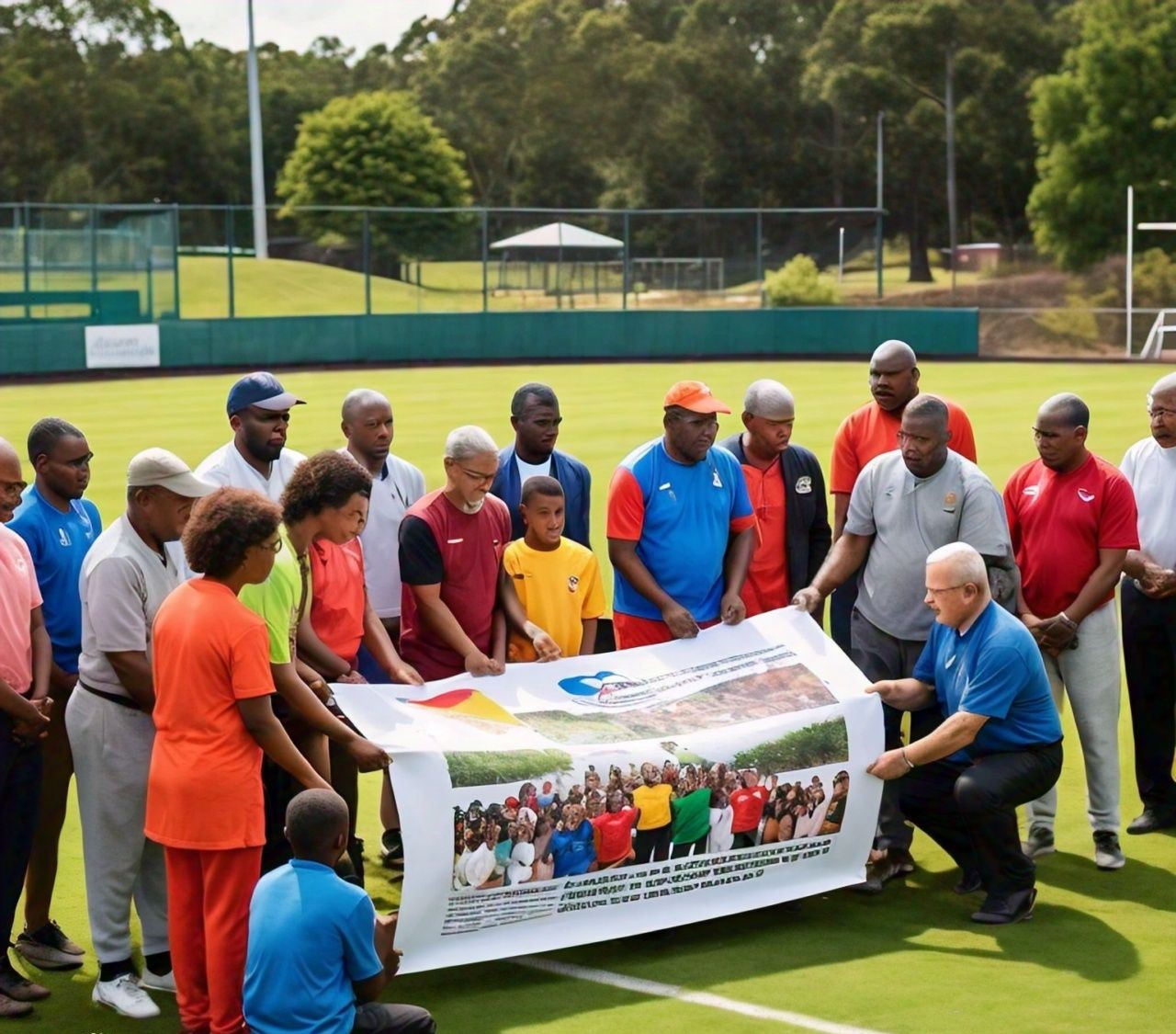Unveiling the Impact of Sports on Development and Unity Leave a comment
Sports and Community Development
Introduction
Sports have long been considered a powerful tool for community development. Whether it’s a neighborhood soccer match, a city-wide marathon, or national sports leagues, the impact of sports on communities is profound and far-reaching. This article delves into how sports contribute to community development, examining various aspects such as health benefits, social cohesion, economic impacts, and youth engagement. By understanding these connections, communities can better leverage sports to support growth and harmony.
Health Benefits of Sports in Communities
One of the most immediate and visible impacts of sports on community development is the improvement in public health. Regular physical activity associated with sports helps combat numerous health issues such as obesity, cardiovascular diseases, diabetes and mental health disorders.
Physical Health
Participation in sports encourages a healthier lifestyle by promoting regular exercise. This, in turn, reduces the risk of chronic diseases. Communities that engage in organized sports activities often see a lower incidence of obesity and related health problems. Furthermore, sports facilities like gyms, park and playgrounds provide safe environments for physical activity also making it easier for residents to stay active.
Mental Health
Sports also play a crucial role in enhancing mental health. Physical activity releases endorphins, which are natural mood lifters. Additionally, being part of a team or a sports club provides social interaction and a sense of belonging which are vital for mental well-being. Regular participation in sports can ease stress, anxiety and depression, leading to a happier and more resilient community.
Social Cohesion Through Sports
Sports act as a unifying force in communities, bridging social, economic and cultural divides. They offer a common ground where people from diverse backgrounds can interact, collaborate and build relationships.
Building Social Networks
Participating in sports creates opportunities for individuals to meet and form friendships. These social networks are essential for creating strong and supportive communities. Events such as local tournaments, sports festivals and charity runs bring people together also supporting a sense of unity and shared purpose.
Promoting Inclusivity
Sports can break down barriers of race, class, and gender. Inclusive sports programs ensure that everyone has the opportunity to participate. For example, initiatives that promote girls participation in sports or adaptive sports for people with disabilities help create more respectful communities.
Conflict Resolution
Sports also serve as an effective tool for conflict resolution. By promoting teamwork, discipline and respect, sports teach important social skills that can be used to resolve disputes peacefully. Community sports programs often include elements of conflict resolution training helps participants learn how to navigate and resolve conflicts constructively.
Economic Impact of Sports
The economic benefits of sports on community development are substantial. From job creation to tourism, sports can be a significant driver of economic growth.
Job Creation
Sports generate employment opportunities in various sectors including coaching, event management, facility maintenance and sports retail. Local sports clubs, gyms and recreational centers employ numerous individuals contributing to the local economy. Additionally, major sporting events require temporary staff to providing short-term employment boosts.
Tourism and Local Businesses
Sports events attract visitors, boosting local tourism and benefiting businesses such as hotels, restaurants and shops. Hosting large-scale events such as marathons, football matches, or tennis tournaments brings in spectators and participants from outside the community, generating revenue and promoting the area as a tourist destination.
Infrastructure Development
Investment in sports infrastructure such as stadiums, sports complexes and recreational facilities leads to overall community development. Improved infrastructure not only increase the quality of life for residents but also attracts future investments. Well-maintained sports facilities can become community hubs offering various services and activities that benefit all age groups.
Youth Engagement and Development
Engaging youth in sports is critical for their personal development and for building a vibrant community. Sports offer a constructive outlet for young people also helping them develop essential life skills and stay away from negative influences.
Character Building
Sports instill values such as discipline, perseverance, teamwork and leadership. Young athletes learn the importance of hard work, commitment, and time management. These skills are transferable to other areas of life including academics and future careers.
Education and Career Opportunities
Participation in sports can open doors to educational and career opportunities. Scholarships for student-athletes provide access to higher education while talent identification programs can lead to professional sports careers. Moreover, involvement in sports can be a valuable addition to college and job applications that’s develops candidate’s teamwork and leadership abilities.
Crime Prevention
Sports programs are effective in diverting youth from engaging in criminal activities. Providing structured, supervised activities keeps young people occupied and less likely to be influenced by negative peer pressure. Many communities have successfully used sports as a strategy to reduce juvenile delinquency and improve public safety.
Community Pride and Identity
Sports can significantly enhance community pride and identity. Successful sports teams and events can become a source of local pride, uniting residents and supporting a strong sense of belonging.
Local Heroes and Role Models
Athletes who achieve success in sports often become local heroes and role models. Their achievements inspire the community, particularly young people to pursue their dreams and compete for excellence. Celebrating local sports heroes can boost community morale and motivate others to get involved in sports.
Cultural Celebrations
Sports events often coincide with cultural celebrations by adding to the vibrancy of community life. Traditional sports and games are an integral part of many cultural festivals, defend heritage and fostering community spirit. These events provide an opportunity for residents to celebrate their culture and traditions together.
Challenges and Solutions in Using Sports for Community Development
While the benefits of sports for community development are clear however , there are challenges that need to be addressed to maximize their impact.
Accessibility and Inclusion
Ensuring that sports programs are accessible to all community members is crucial. This includes providing affordable options, accommodating different skill levels and making facilities accessible to people with disabilities. Community leaders must work to eliminate restriction to participation and promote well competition.
Funding and Resources
Sustaining sports programs requires good funding and resources. Communities often face budget problems that limit the availability of sports facilities and programs. Public-private partnerships, grants and sponsorships can be explored to secure the necessary resources.
Volunteerism and Community Involvement
Successful sports programs depend heavily on volunteers and community involvement. Encouraging volunteerism and supporting a sense of ownership among residents can increase the sustainability of sports initiatives. Community leaders should engage local businesses, schools and organizations to support and participate in sports programs.
Conclusion
Sports are a powerful engine for community development offering a multitude of benefits that extend beyond the playing field. From improving public health to supporting social cohesion, driving economic growth and engaging youth, the positive impacts of sports are profound. By addressing challenges and using the potential of sports, communities can create vibrant, healthy and inclusive environments where everyone can flourish. Embracing sports as a tool for development not only increases the quality of life for residents but also builds stronger as well as more resilient communities.






















